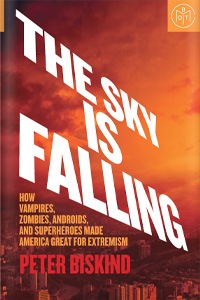

Social sciences
Falter
by Bill McKibben
View audiobook
Quick take
The end of the world is here. Read all about it.
Synopsis
Bill McKibben’s groundbreaking book The End of Nature—issued in dozens of languages and long regarded as a classic—was the first book to alert us to global warming. But the danger is broader than that: even as climate change shrinks the space where our civilization can exist, new technologies like artificial intelligence and robotics threaten to bleach away the variety of human experience.
Falter tells the story of these converging trends and of the ideological fervor that keeps us from bringing them under control. And then, drawing on McKibben’s experience in building 350.org, the first truly global citizens movement to combat climate change, it offers some possible ways out of the trap. We’re at a bleak moment in human history—and we’ll either confront that bleakness or watch the civilization our forebears built slip away.
Falter is a powerful and sobering call to arms, to save not only our planet but also our humanity.
Free sample
Get an early look from the first pages of Falter.
Why I love it
Ben Goldfarb
Author, Eager: The Surprising, Secret Life of Beavers and Why They Matter
As an environmental journalist, I’m a connoisseur of bad news: Every day I read about how we’re exterminating wildlife, demolishing forests, and cooking the planet. It’s hard, sometimes, to balance realism with optimism, to retain faith in humanity while acknowledging our misdeeds. That’s why I’m grateful for Bill McKibben’s Falter, a book that manages the difficult trick of both terrifying readers and inspiring them. Never has our demise been so entertaining.
McKibben rose to prominence with his 1989 climate exposé The End of Nature; his latest work is about the end of us. At the moment, he admits, Homo sapiens are having a good run, blessed with declining rates of poverty and violent conflict. But climate change and its symptoms—heat waves, hurricanes, wildfires—are reversing social progress. Economic inequality threatens to unravel society, while Artificial Intelligence and gene editing may distort what it means to be human. Silicon Valley might finish us off, if fossil fuels don’t get us first.
That sounds bleak, but McKibben’s lively prose makes Falter a deeply engaging read, if not exactly a pleasurable one. And he offers two sources of solace: the proliferation of solar panels, which are providing carbon-free electricity to the masses; and the growing trend of climate activists protesting for a fairer, cooler future. Falter may not leave you hopeful, but it’s a bracing reminder that our species can’t go down without a fight.





















